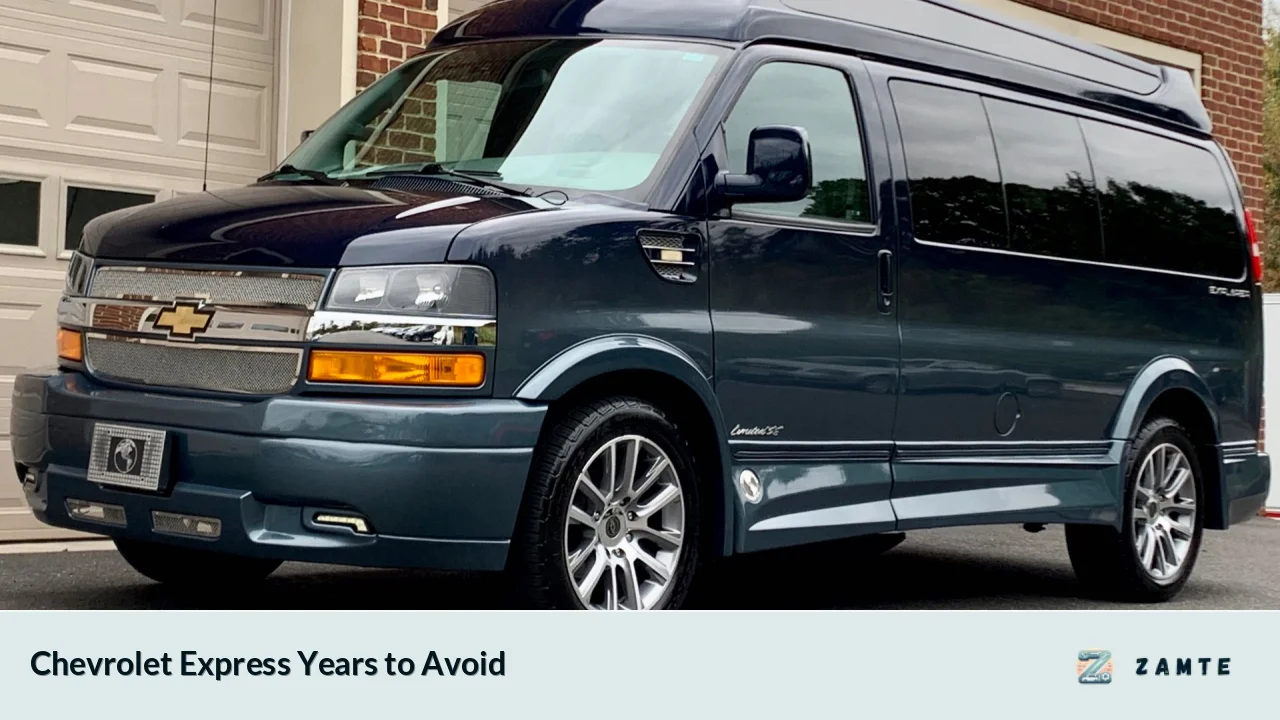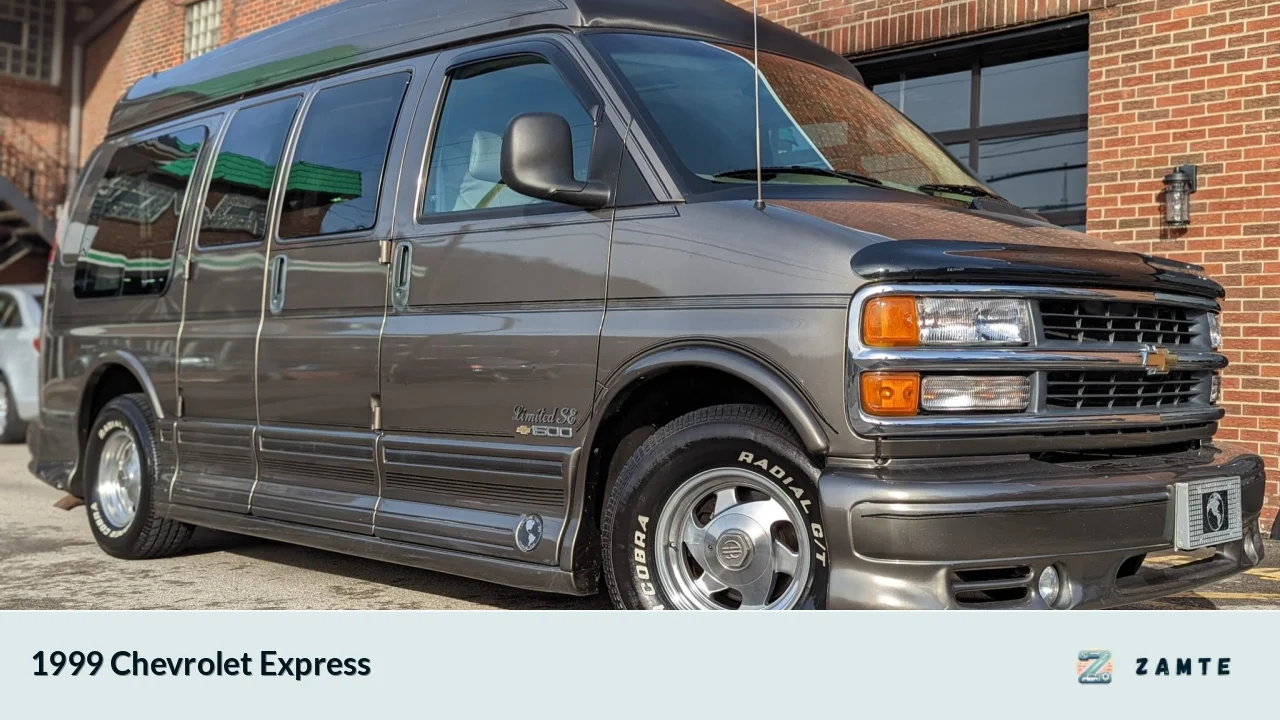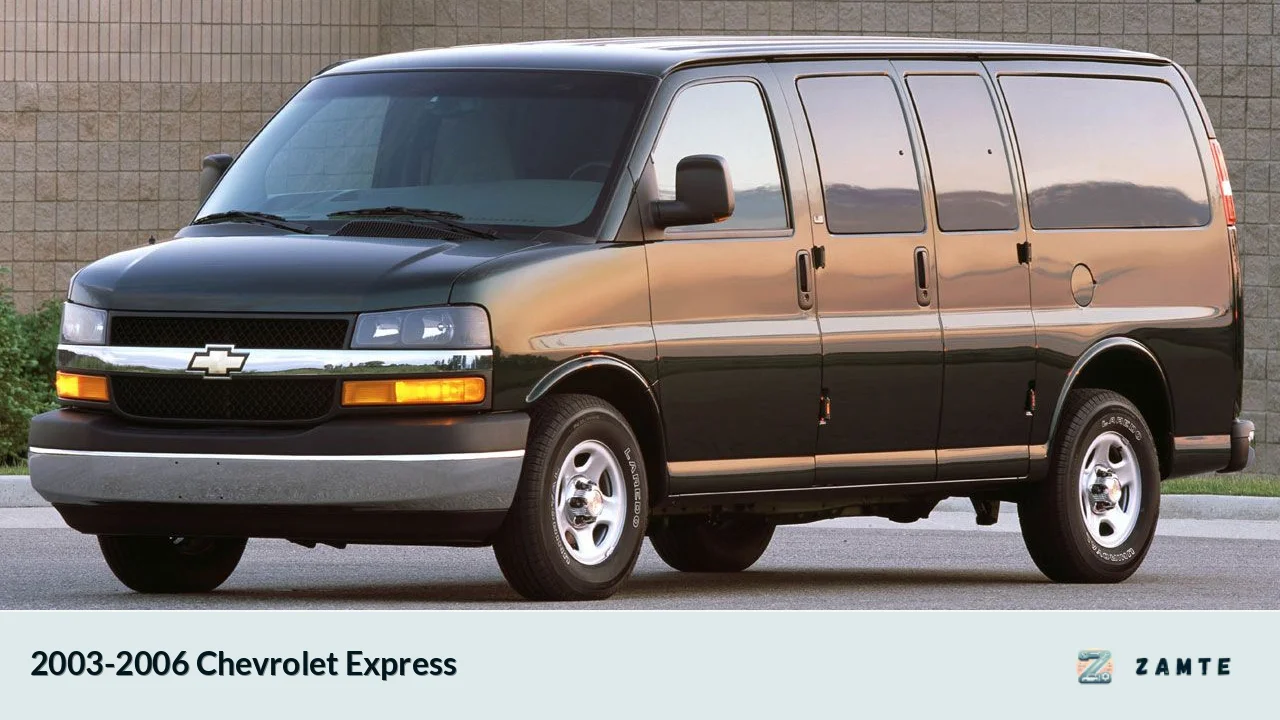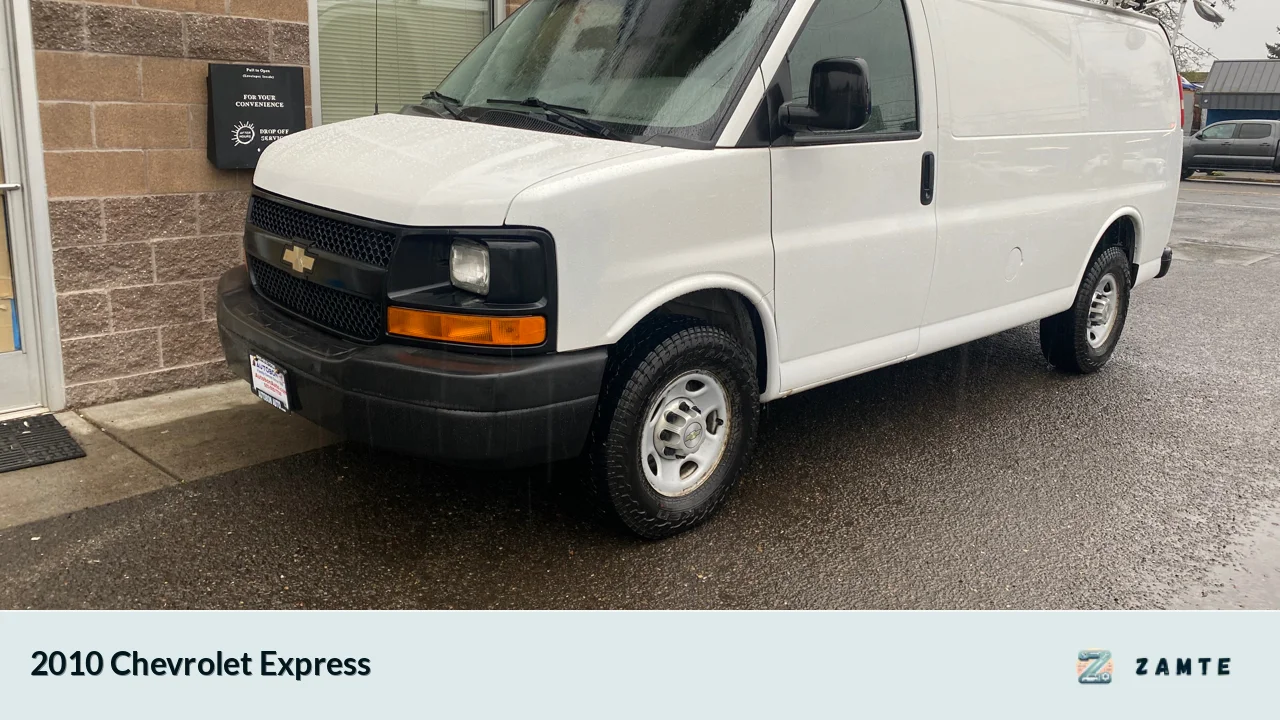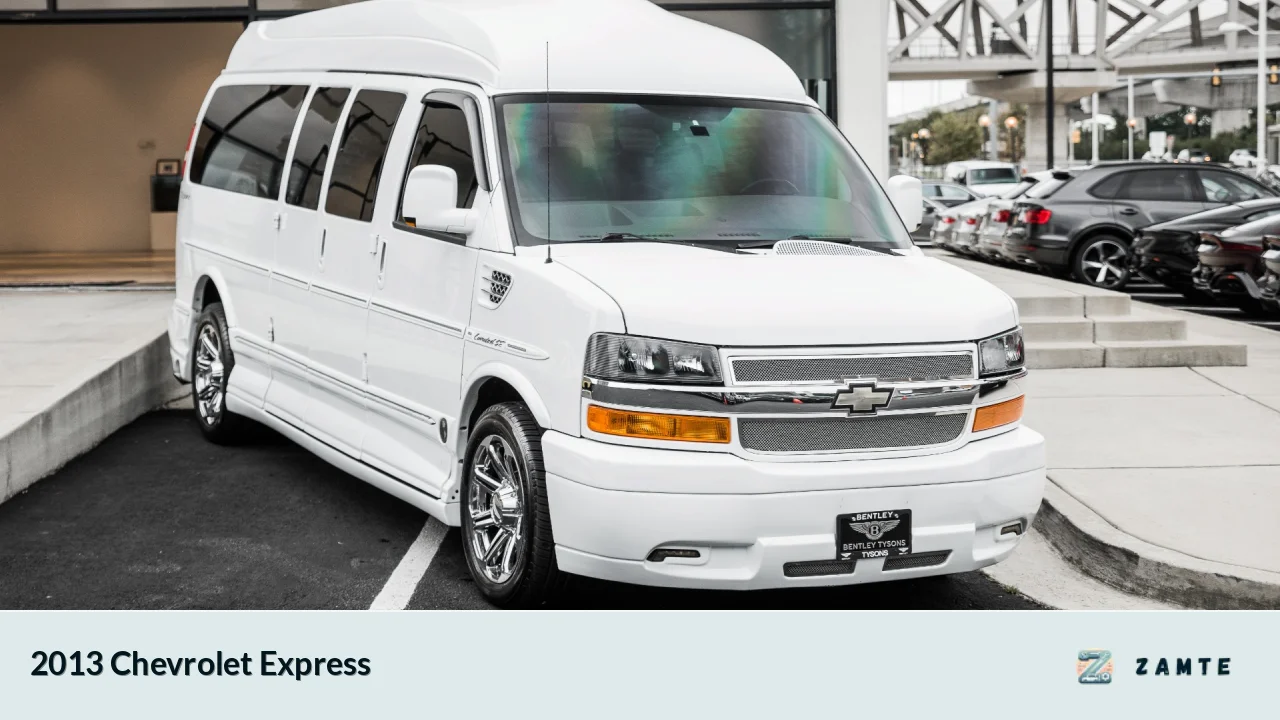The Chevrolet Express has been a popular choice for commercial and personal use since its introduction in 1996. However, like any vehicle, some model years have proven more reliable than others. This comprehensive guide will help you navigate the Chevrolet Express lineup, highlighting the years to avoid and providing valuable insights for potential buyers and current owners.
Overview of Chevrolet Express Generations
The Chevrolet Express has been in production for over two decades, with only one generation spanning from 1996 to 2020. Despite its long production run, the van has undergone several updates and improvements over the years. Let's take a look at a quick overview of the Express's history:
| Generation | Years | Key Features |
|---|---|---|
| First Generation | 1996-2020 | Multiple engine options, various configurations, improved safety features over time |
Chevrolet Express Years to Avoid
Based on extensive research and user reports, certain model years of the Chevrolet Express have shown more problems than others. Here are the years you should be cautious about:
1. 1999 Chevrolet Express
The 1999 model year stands out as one of the most problematic for the Chevrolet Express. The most common issue reported for this year is fuel pump failure[1]. This problem can lead to sudden stalling and potential safety hazards on the road.
2. 2003-2006 Chevrolet Express
These model years have been plagued with paint-related issues. Many owners have reported problems with paint flaking off and poor paint jobs[1]. While this may seem cosmetic, it can lead to rust and decreased resale value.
3. 2010 Chevrolet Express
The 2010 model year is particularly notorious for engine problems. Excessive oil consumption in the 5.3L Vortec 5300 engine has been a significant issue[1]. This problem can lead to various engine-related complications if not addressed promptly.
4. 2013 Chevrolet Express
While not as problematic as some earlier years, the 2013 model has had its share of issues. It's included in the list of years to be cautious about, though specific problems are less prevalent compared to other years[1].
Common Problems Across Multiple Years
While certain years stand out as particularly problematic, some issues have been reported across multiple model years of the Chevrolet Express. Being aware of these can help you make an informed decision or better maintain your vehicle:
1. Engine Issues
The 5.3L Vortec 5300 engine, used in Express vans from 2010 to 2014, has been known to suffer from excessive oil consumption[1]. This problem stems from multiple design flaws:
- Low-tension piston rings allowing oil to leak into the combustion chamber
- Active Fuel Management (AFM) system overloading the already leaking rings
- Positive crankcase ventilation (PCV) system drawing oil into the intake
These issues can lead to:
- Soiled spark plugs
- Bent pushrods
- Timing chain wear
"GM used low-tension piston rings that allow oil to leak out of the crankcase and into the combustion chamber."[1]
2. Paint Problems
Multiple model years, particularly 2003-2006, have been reported to have issues with paint quality[1]. Owners have complained about:
- Paint flaking off
- Poor paint jobs
- Peeling paint
These issues not only affect the vehicle's appearance but can also lead to rust and corrosion if left unaddressed.
3. Fuel System Problems
Fuel pump failure has been a recurring issue, especially in earlier models like the 1999 Express[1]. This can cause:
- Sudden stalling
- Difficulty starting the vehicle
- Poor fuel economy
4. Transmission Issues
Some Express vans have experienced transmission problems, with torque converter failure being reported in models like the 2009 Express[1]. Symptoms may include:
- Slipping gears
- Harsh shifting
- Transmission fluid leaks
Positive Aspects of the Chevrolet Express
Despite the issues mentioned above, the Chevrolet Express has several positive attributes that have contributed to its long-standing popularity:
1. Durability
Many Express vans have been known to reach high mileages with proper maintenance. As one mechanic reported:
"I don't know much about the 1500 model but my local mechanic still maintains Chevy cargo vans with 300K on them."[2]
2. Versatility
The Express comes in various configurations, making it suitable for a wide range of applications, from commercial use to personal conversions.
3. Towing Capacity
Higher trim levels of the Express offer impressive towing capabilities, making it a popular choice for those needing to haul heavy loads.
4. Spacious Interior
The large interior space of the Express makes it ideal for cargo hauling or passenger transport, depending on the configuration.
Buying Tips for the Chevrolet Express
If you're considering purchasing a Chevrolet Express, here are some tips to help you make an informed decision:
1. Thorough Inspection
Always have a trusted mechanic inspect the vehicle before purchase. They should check:
- Engine condition and oil pressure
- Transmission fluid quality and shifting performance
- Paint condition and any signs of rust
- Electrical systems, including the check engine light
2. Service Records
Request and review all available service records. Regular maintenance can significantly extend the life of these vans.
3. Consider the Model Year
Based on the information provided earlier, be cautious when considering model years known for issues, particularly 1999, 2003-2006, and 2010.
4. Test Drive
Always take the van for a thorough test drive. Pay attention to:
- Engine performance and any unusual noises
- Transmission shifting smoothness
- Brake responsiveness
- Steering and handling
5. Check for Recalls
Verify if all applicable recalls have been addressed. Some Express vans have been subject to recalls, such as the 2021 model's battery fire risk[1].
Maintaining Your Chevrolet Express
To keep your Chevrolet Express running smoothly and avoid potential issues, consider the following maintenance tips:
1. Regular Oil Changes
Frequent oil changes are crucial, especially for models prone to oil consumption issues. Consider using synthetic oil for better engine protection.
2. Monitor Fluid Levels
Regularly check and top up all fluids, including engine oil, transmission fluid, coolant, and brake fluid.
3. Address Issues Promptly
Don't ignore warning signs or check engine lights. Addressing problems early can prevent more severe and costly repairs down the line.
4. Follow Manufacturer Recommendations
Adhere to Chevrolet's recommended maintenance schedule for your specific model year and engine type.
5. Protect the Paint
For models prone to paint issues, consider applying a protective coating or regularly waxing the vehicle to maintain the paint's integrity.
Conclusion
The Chevrolet Express has proven to be a durable and versatile van over its long production run. However, certain model years have shown more problems than others. By being aware of the years to avoid (particularly 1999, 2003-2006, and 2010) and understanding common issues, you can make a more informed decision when considering an Express van.
Remember, proper maintenance and prompt attention to issues can significantly extend the life of your vehicle, regardless of the model year. Whether you're using the Express for commercial purposes or as a personal vehicle, its spacious interior and robust build can serve you well when properly cared for.
FAQs
- What is the most reliable year for the Chevrolet Express?
While reliability can vary, models from the mid-2010s generally have fewer reported issues. - How long do Chevrolet Express vans typically last?
With proper maintenance, many Express vans can last well over 200,000 miles. - Are Chevrolet Express vans good for conversions?
Yes, their spacious interiors and robust build make them popular choices for van conversions. - What's the average fuel economy of a Chevrolet Express?
Fuel economy varies by engine, but most Express vans average between 13-16 mpg combined. - Is the Chevrolet Express still in production?
Yes, Chevrolet continues to produce the Express van with updates to meet modern standards.
